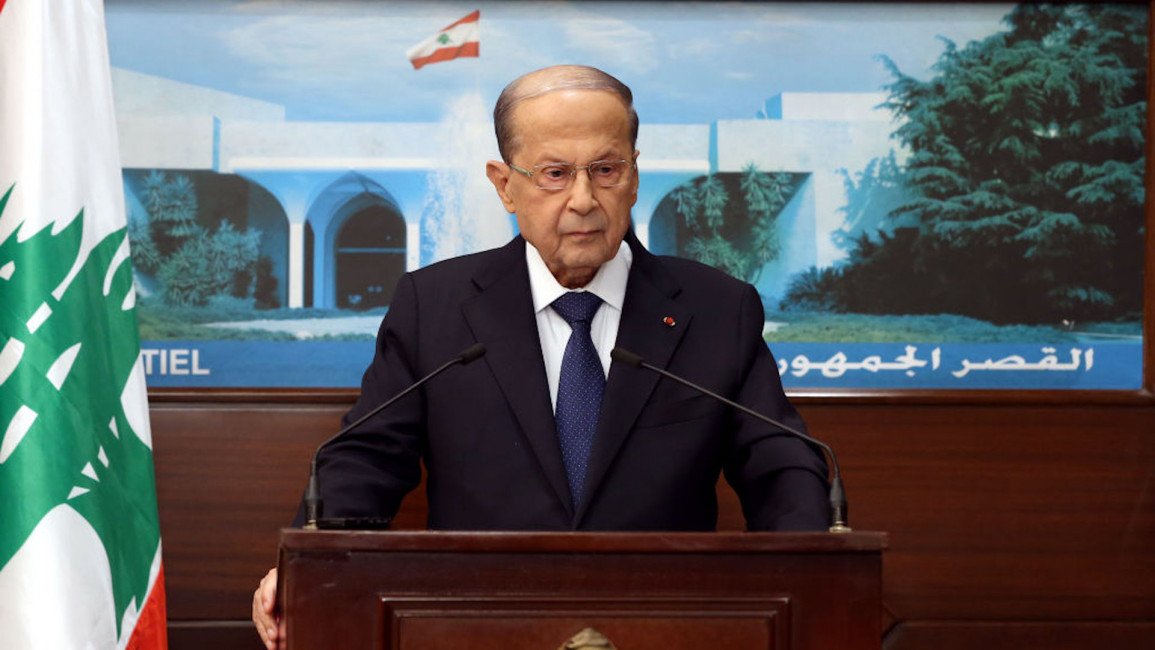Lebanon president says May elections will take place 'on time'
Lebanese President Michel Aoun reaffirmed on Sunday that the parliamentary elections set for May will happen on time despite rumours that they could be delayed as ruling and opposition parties gear up for the crucial vote.
"I assure you as I assure [all] the Lebanese, that the parliamentary elections will take place and all preparations are ready - unless something happens, God forbid," Aoun told reporters.
He was speaking from Bkerki, the seat of the Maronite church, after meeting with Patriarch Beshara Boutros al-Rai before an Easter Mass.
"The first question all Lebanese and foreigners [officials] ask me is whether the elections will take place, and I assure them every time that it will happen, as I am reassuring everyone today," Aoun said.
Asked about the voting process for Lebanese abroad, Aoun said it was up to the interior and foreign ministers to address any issues but that so far he was unaware of any obstacles.
"The elections are taking place, so why assume otherwise?" he said.
'The status of women in our country is miserable': Lebanese women fight to be heard in the upcoming elections https://t.co/NOunnI4hBF
— The New Arab (@The_NewArab) April 8, 2022
Lebanese will cast their ballots on May 15, voting for 128 representatives. Lebanese emigrants will vote on May 6 and 8, depending on the weekend in their country of residence.
Nearly 245,000 Lebanese living abroad had voted to register in the legislative elections - a huge increase from the 2018 polls when around 90,000 people registered.
The number was filtered down to 225,000 however after some applications were found to be faulty or duplications, the interior ministry had said.
Some parties, including the Free Patriotic Movement and its ally Hezbollah, had fought to keep expatriate votes confined to a single, additional constituency, which would have banned them from voting in their own electoral districts back home and seen them represented by only six lawmakers.
The proposal was dropped in parliament.
The elections are being viewed by some as the first springboard towards change following large anti-government protests, which began in 2019.
Living amid the worst socio-economic and financial crisis in Lebanon’s modern history, many Lebanese have been sceptical that the vote will take place on time due to financial difficulties, despite the cabinet allocating necessary funds.
Various media reports in recent weeks have warned that a number of potential problems could hinder the vote on May 15, such as power cuts – lasting up to 22 hours in most regions – protests, roadblocks, or possible attacks.
Non-sectarian opposition groups that have emerged in recent years to challenge the ruling class say such propaganda is aimed at scaring people away from voting, among other tactics used by the powerful elite.



